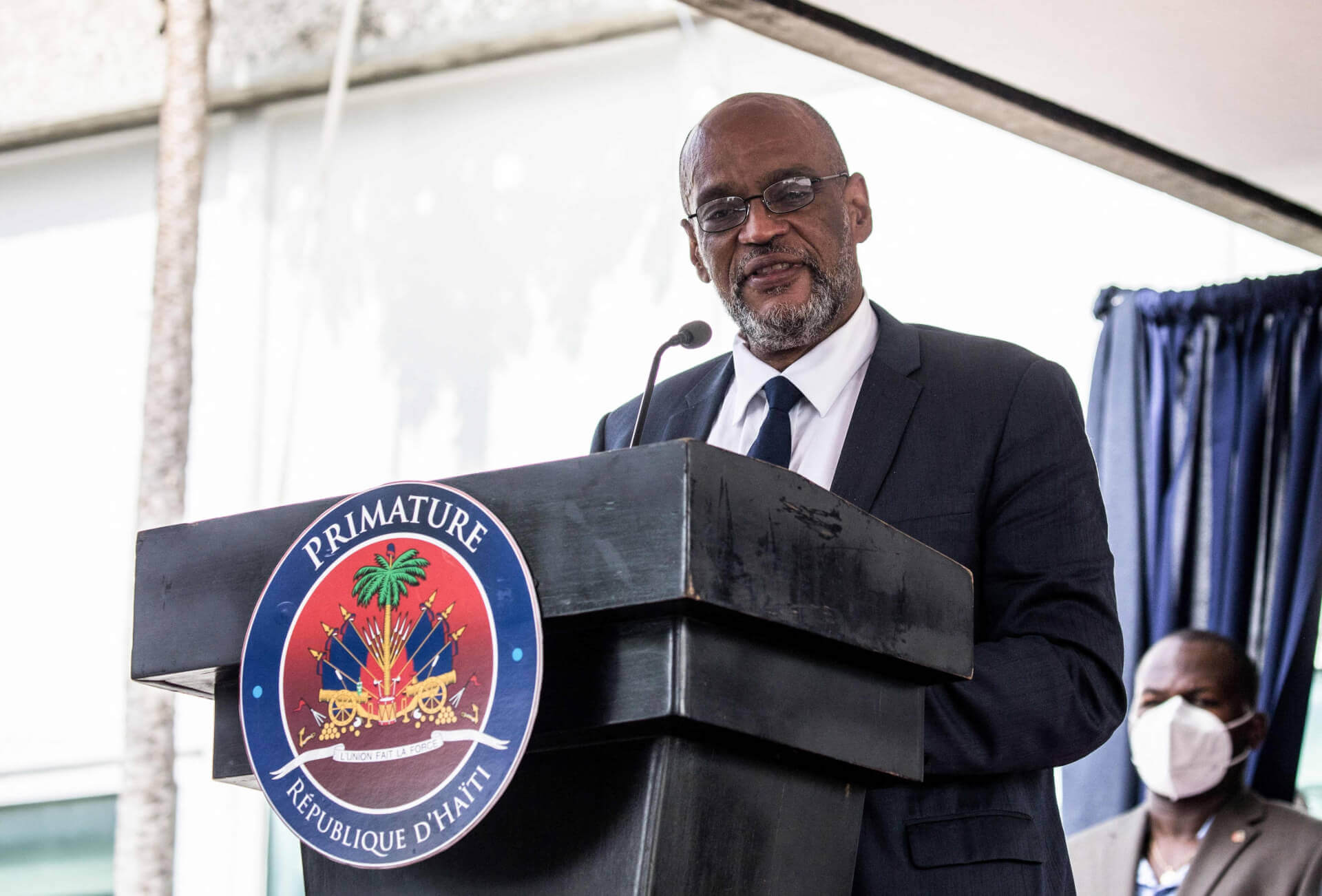The political crisis in Haiti is reaching a tipping point amid a spate of dismissals and resignations surrounding the investigation into President Jovenel Moïse’s assassination and current Prime Minister (PM) Ariel Henry’s alleged involvement.
On Wednesday, PM Henry sacked Justice Minister Rockefeller Vincent, just one day after the dismissal of Port-au-Prince’s chief prosecutor, Bed-Ford Claude. Furthermore, the justice minister’s dismissal was closely followed by the resignation of Renald Lubérice, the secretary-general of the country’s Council of Ministers.
In fact, Lubérice said that that he could not continue to carry out his role under the leadership of someone who is under suspicion of complicity in Moïse’s assassination and someone who “does not intend to cooperate with justice, seeking, on the contrary, by all means, to obstruct it.”
Likewise, chief prosecutor Claude had invited Henry to offer his testimony in the case and also requested that the PM be barred from leaving the country while the investigation remains active. Claude also told the judge overseeing the investigation: “There are enough compromising elements ... to prosecute Henry and ask for his outright indictment.” Soon after making these requests, however, Henry replaced Claude with Frantz Louis Juste on Tuesday, saying that Claude had committed “serious administrative errors.”
Just one day earlier, Justice Minister Vincent had ordered that Claude be provided with increased police security in light of “important and disturbing threats” received by the chief prosecutor. Moreover, the first judge who was appointed to oversee the investigation, Mathieu Chanlatte, resigned from the role on August 13 due to “personal reasons.” However, there could have been more at play in his resignation, given that he stepped down just one day after one of his assistants died under “unclear circumstances.”
Vincent was replaced by Liszt Quitel as the new justice minister, while Lubérice has been replaced by Josué Pierre Louis.
Henry is one of the main suspects in the assassination, given that there are reports that he spoke at least twice with former civil servant Felix Badio, a former justice ministry official who has been accused of being one of the masterminds behind the assassination.
There is currently a warrant out for Badio’s arrest, who spoke with PM Henry on the phone at least twice, including at 4am on July 7, just hours after Moïse was killed. Geolocation data provided by telecommunications company Digicel has also revealed that Badio was present at the scene of the crime.
Against this backdrop, on Wednesday, the Core Group—comprised of the ambassadors of Germany, Brazil, Canada, Spain, the United States (US), France, the European Union (EU), as well as representatives from the United Nations (UN) and the Organization of American States (OAS)—put out a joint statement calling for “full light to be shed on the assassination” of Moïse.
Henry, however, appears to be consolidating his power. Last Monday, it was announced that Haitian officials had reached an agreement to officially place the country under the control of PM Henry and remove the position of provisional president until elections are held at the end of next year.
However, fractures are now beginning to appear in the government, as some Moïse break away from Henry’s block.
On July 7, Haitian President Jovenel Moïse, 53, was assassinated at his residence in Port-au-Prince. Subsequently, interim PM Claude Joseph agreed to step down to allow PM-designate Ariel Henry to take over.
Aside from this political upheaval, the country is simultaneously reeling from the impact of a 7.2 magnitude earthquake that struck the country on August 14 and killed over 2,200 and left hundreds missing.
Suspicion Grows in Haiti Over PM Henry’s Involvement in President Moïse’s Assassination
On Wednesday, Prime Minister Ariel Henry sacked Justice Minister Rockefeller Vincent, just one day after the dismissal of Port-au-Prince’s chief prosecutor, Bed-Ford Claude.
September 17, 2021

IMAGE SOURCE: VALERIE BAERISWYL / AFP VIA GETTY IMAGESHaitian PM Ariel Henry
